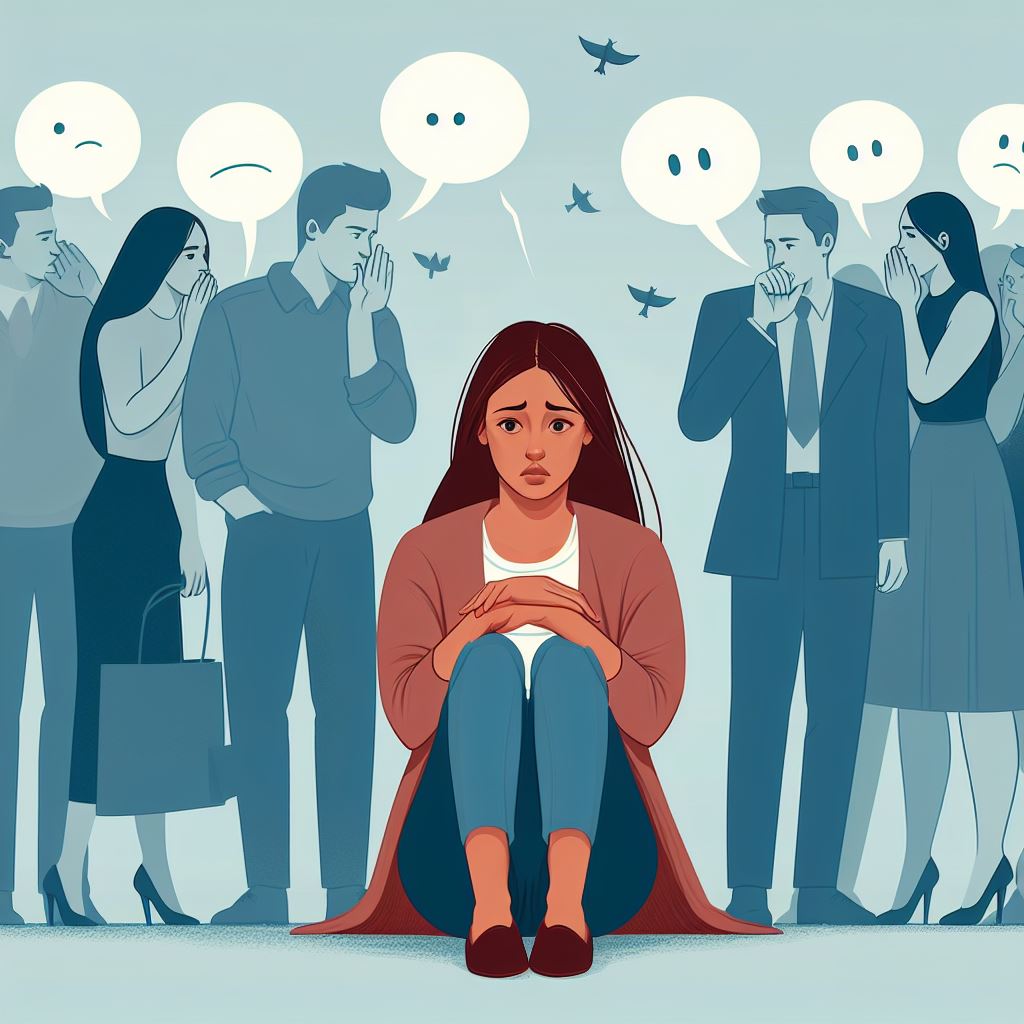
Do you have an “imaginary audience” that is always following you around and judging you? This feeling that we are always being watched can become a great source of social anxiety and insecurity.
If you suffer from social anxiety then you know what it’s like to always feel like you’re being watched by others.
Maybe you’re out shopping at the grocery store and you hear people laughing behind you. Then you begin to think to yourself, “They must be laughing at me!”
Maybe you’re sitting taking notes during class and you start hearing people whisper something. So you begin to worry to yourself, “What are they saying about me?”
Maybe you’re just walking through a public place like a bar or party, but you feel like everyone you pass is staring at you and judging you.
You’re not alone in these feelings.
Psychologists have a name for it – it’s called the myth of the “imaginary audience.” And it comes from the unrealistic view that we are the center of the universe and everything that people say or do is somehow a response to us.
I first heard about this concept of an “imaginary audience” in the book Ego Is The Enemy by Ryan Holiday. It’s a great breakdown of how our ego (an over-inflated sense of self-importance) can often destroy us. In the book he says:
-
“As the psychologist David Elkind has famously researched, adolescence is marked by a phenomenon known now as ‘imaginary audience.’ Consider a thirteen-year-old so embarrassed that he misses a week of class, positive that the entire school is thinking and murmuring about some tiny incident that in truth hardly anyone noticed. Or a teenage girl who spends three hours in front of the mirror each morning, as if she’s about to go on stage. They do this because they’re convinced that their every move is being watched with rapt attention by the rest of the world. Even as adults, we’re susceptible to this fantasy during a harmless walk down the street.”
I certainly remember as a teenager having this feeling of an “imaginary audience” always watching me. It was a big source of my social anxiety throughout high school.
No matter where I was or what I was doing, I always felt like I was being watched, talked about, and judged by everyone who was around me.
Many of us still carry this feeling of an “imaginary audience” into our adult lives. While it feeds into feelings of social anxiety and depression, it actually comes from an odd sense of self-importance and self-centeredness.
The “imaginary audience” comes from the egotistical belief that the world revolves around us, and therefore we must always be more than what we are because everyone’s eyes are always on us.
It leads us to believe that we must always put on a “show” to impress others. After all, we have an audience to win over!
But when we set our egos aside, we know that this isn’t true – it’s a belief based on delusion. The simple truth is that most people are likely not as interested in us as we think they are – and sometimes that can be a very freeing perspective.
Most people are actually too preoccupied with themselves and their own “imaginary audiences” to worry about judging you. They are too worried about being judged themselves and keeping up with their own appearance!
So the good news is you’re not the only one living in your head and worrying about what everyone thinks of you – that’s actually how MOST people are!
Most people you encounter on a daily basis don’t really care about you or your appearance – that may sound a bit rude or insensitive, but it can actually be strangely relieving and encouraging!
When you realize that everyone has their own “imaginary audience” that they are worried about, it takes a lot of pressure off of you to always try to impress everyone. You don’t need to put on a show. No one is that focused on you.
In fact, even if someone happens to notice something silly, stupid, or embarrassing you did, they’ll likely forget about it by the next day and go back to worrying about themselves.
So remember, we all focus and worry about ourselves more than we do other people. Perhaps this is why some research shows that focusing too much on “me” can often feed into these feelings of depression and social anxiety.
The next time you think you’re being watched, talked about, or judged by others, remind yourself of this myth of the “imaginary audience” and hopefully it can bring you some extra comfort! There’s a 99% chance that no one really cares.
Enter your email to stay updated on new articles in self improvement:
